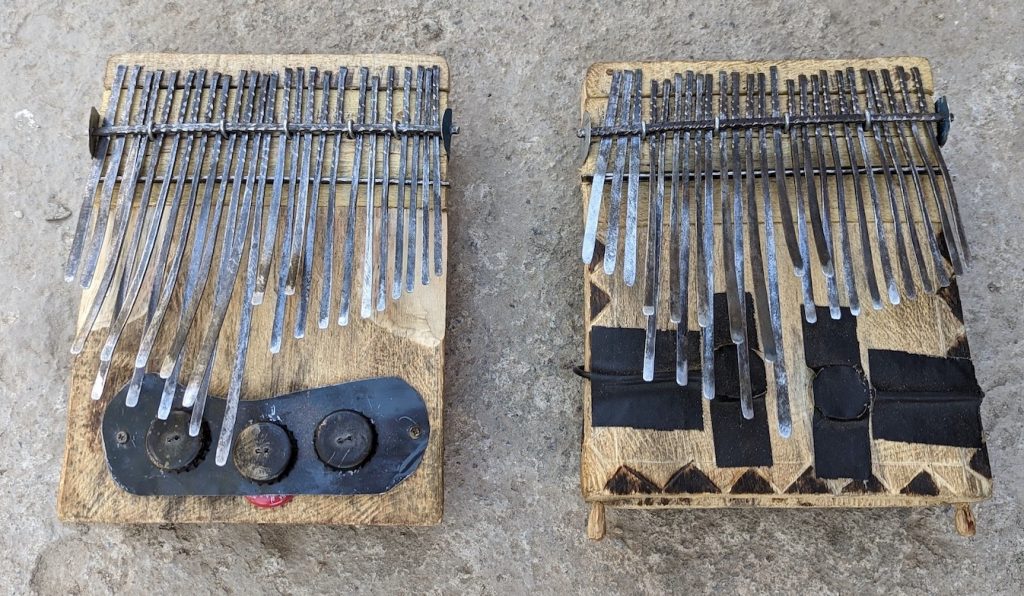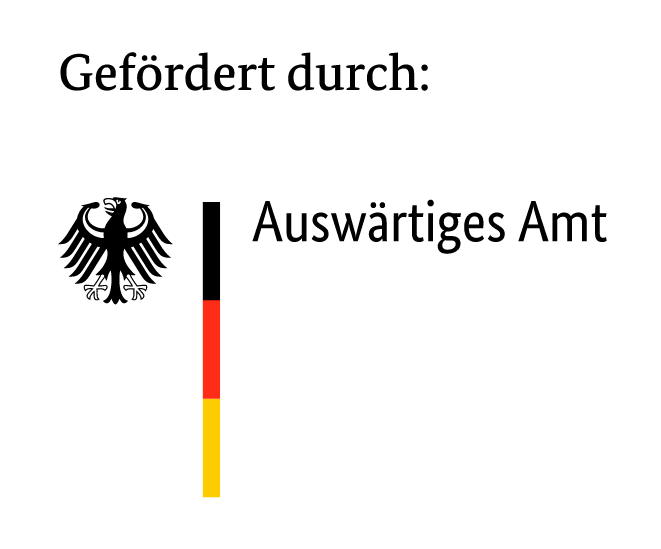This is the website of our project Matepe 21st – Documenting Chaka Chawasarira’s repertoire, which started mid-May 2023 at Chawasarira’s home in Chitungwiza, Zimbabwe.
We have documented the entire matepe repertoire of (then) 82-year old master musician Chaka Chawasarira, as well as his instrument building process, and created a comprehensive set of video tutorials on both aspects, optimised for use on mobile phones.
The videos are available on this website (sign up here), and distributed offline through music schools, cultural centers, and individuals in Zimbabwe, both free of charge.

The Matepe
The matepe is a mbira (lamellophone) from Northeast Zimbabwe and adjacent regions of Mozambique. It is among the most sophisticated mbiras of the entire continent in terms of construction, [overtone] tuning, and playing technique. It is played with four fingers, often each with their own rhythmic pattern.
Chawasarira’s album that we recorded
alongside the project
Unfortunately, the matepe has become very rare. According to recent research, there’s only a good handful of master musicians who play their full regional repertoire, and only two experienced makers of the instrument in the country – Chawasarira himself and James Kamwaza from Rushinga.

The Team
Our project team (from left to right):
- Kuda “Samora” Nyaruwabvu, digital media expert, performing musician, and matepe student
- Stefan Franke, cultural preservation activist and creator of the Sympathetic Resonances learning platform for mbira
- Chaka Callisto Chawasarira
- Othnell “Mangoma” Moyo, professional musician, instrument builder, ethnomusicological researcher, and cultural preservation activist. Founder of Ngoma iNgungu Cultural Arts Center
Our approach and our values
An international project like this takes place in a situation characterised by stark discrepancies – starting with elementary things such as freedom of travel, effective fundamental rights, and the economic situation of the African and European participants.
In our project we tried to avoid imbalances wherever possible and to implement fair cooperation on an equal footing.
The following things are important to us, among others:
Click on the headings to see how they were concretely implemented.
Local impact first.
Documenting things is (relatively) easy. Getting knowledge to where it may make a change is hard.
We do not stop with “cultural preservation” at the point where the material is safely stored in the (often Western) archives. Firstly, we actively distribute the videos created locally and make them available online – which is primarily aimed at Zimbabweans in the diaspora.
But this effect is also only limited, because on the one hand video is a very resource-intensive medium, and on the other hand the matepe is by no means a standardised instrument: There are many different tunings and some layout variants.
Therefore, secondly, our project is embedded in the roadmap of the Sympathetic Resonances platform to create a remote learning infrastructure for traditional musics, which can, among other things, bridge the aforementioned limitations based on a smartphone app adapted to local needs.
Local perspective first. No speaking for others.
Our teaching material was created through dialogue. There is no speaker in the videos other than the participants. Since they are primarily intended for a Zimbabwean audience, the language alternates between chiShona and English, just as people in Harare speak.
For longer passages in Shona, we have asked for an English summary or will add this later.
Equal pay for equal work. No taking advantage.
Sekuru Chawarira bears a unique cultural heritage. We made sure that he was treated in the same way that a renowned artist would be treated during a residency at a cultural institution in Germany, and not in the way that could have been negotiated given the country’s economic situation.
The project team members shared many tasks and received the same compensation for each.
Accepting reality. No wishful thinking.
Matepe music is just one aspect of something much larger – a traditional culture, worldview and belief system, and the practices associated with it. It is functional music that has a specific purpose in a ceremonial context, but has also always been played for entertainment at beer parties.
There are very few places where this culture is still practiced anywhere near the way Chawasarira experienced it when he was young, and it is unlikely that this will be the case for very long. Learn about the reasons here.
This project attempts to make a substantial contribution to the preservation of Matepe music in and through the means of the 21st century.
This necessarily involves decontextualization and transformation, and we are aware how the very idea of “cultural preservation” is inherently problematic. Our approach is always pragmatic and based on what the Zimbabwean project team members, as local experts, consider most effective.
Support
The project Matepe 21st – Documenting Chaka Chawasarira’s reportoire was funded by the Federal Foreign Office (Germany’s Foreign Ministry), and supported by the German Embassy Harare.
We are greatly indepted to the FFO and Mrs. Katrin Simon from the embassy.

Gefördert vom Referat KULTURERHALT des Auswärtigen Amtes der Bundesrepublik Deutschland.
Contact: mail@matepe.org